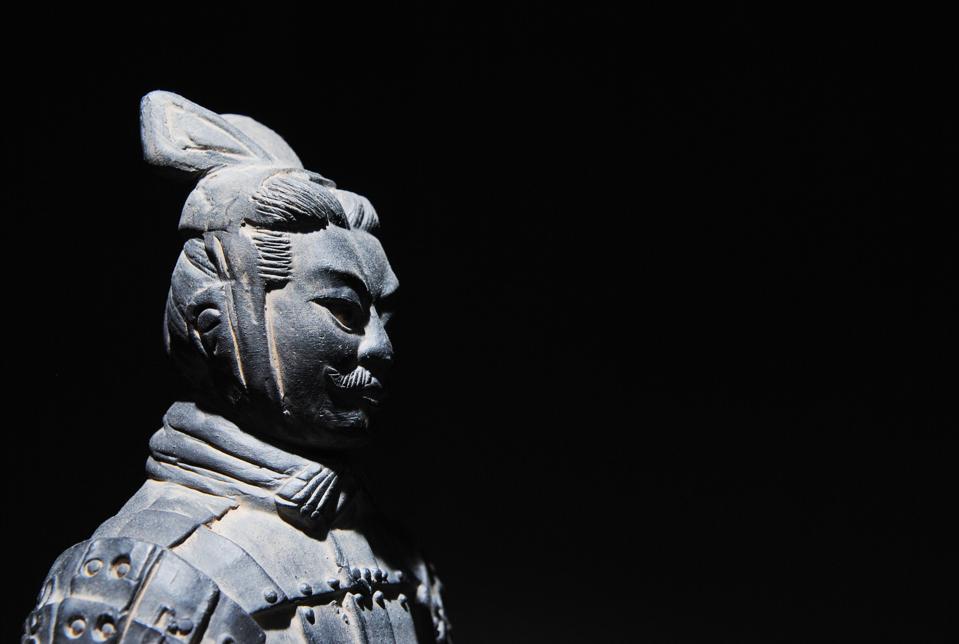Richelieu redefined political negotiation as a game of cold calculation and adaptability. His legacy lies in demonstrating that diplomatic effectiveness resides in the ability to transcend dogmas, manipulate balances of power, and turn information into influence. In a world where globalization and multidimensional crises demand pragmatism, his teachings remain relevant: negotiation is not an act of faith, but of strategy. As he himself stated: “In politics, stupidity is not a handicap,” but cunning is undoubtedly a weapon.
Introduction:
Armand Jean du Plessis, Cardinal Richelieu (1585–1642), a central figure in the consolidation of the modern French state, served as the chief minister to Louis XIII and as the architect of France’s domestic and foreign policy.
His legacy, encapsulated in the maxim “La raison d’État doit primer sur toute autre” (“Reason of State must prevail above all else”), redefined European diplomacy through a fusion of pragmatism, cunning, and power centralization.
This article analyzes Richelieu’s principles of political negotiation, exploring how his realistic approach and strategic vision transformed power relations in Europe, laying the foundations of modern realpolitik.
Reason of State as the Fundamental Pillar:
Raison d’État forms the core of Richelieu’s political philosophy. In his Political Testament (1638), he argues that the interests of the state justify any action, even if it transgresses moral or religious norms. This principle translated into negotiations where:
Utility surpasses ethics: During the Thirty Years’ War (1618–1648), Richelieu supported Protestant powers (Sweden, United Provinces) against the Catholic Habsburgs, prioritizing the weakening of Spain and Austria over religious unity.
Ideological flexibility: By signing the Treaty of Compiègne (1635) with Sweden, he demonstrated that alliances are forged for convenience, not faith.
A key example: The Peace of Westphalia (1648), negotiated posthumously under his influence, enshrined the balance of power over religious dogmas, redefining European diplomacy and ushering in a new historical era.
Divide et Impera: Fragmenting the Adversary:
Richelieu applied the strategy of “divide and conquer” both internally and externally:
Taming the nobility: He reduced the power of great lords by creating bureaucratic positions dependent on the crown, negotiating their submission in exchange for courtly privileges.
Developing the fragmentation of coalitions: During the Thirty Years’ War, he financed enemies of the Habsburgs, such as Gustavus Adolphus of Sweden, to prevent a unified Europe under the Austrian crown.
A highly illustrative case was the Siege of La Rochelle (1627–1628), where Richelieu negotiated with Huguenot leaders after militarily defeating them, granting religious tolerance in exchange for dismantling their political strongholds (finalized in the Peace of Alais, 1629).
Centralization of Power: Authoritarian Negotiation:
Richelieu centralized royal power through a combination of coercion and co-optation, with key examples including:
Royal intendants: He replaced regional governors with loyal officials, negotiating their loyalty through promotions and fiscal control.
Suppression of revolts: He used selective force, as in the repression of the Nu-Pieds Revolt (1639), but offered amnesty to leaders who capitulated.
Strategy: The creation of the Académie Française (1635) not only unified the language but also served as a soft power tool for negotiating national identity.
Diplomacy and Intelligence: The Art of Information:
Richelieu revolutionized espionage as a negotiating tool:
Developing a spy network: Figures like François Leclerc du Tremblay (“Father Joseph”) infiltrated rival courts, providing intelligence to exploit weaknesses.
Signing secret treaties: The Treaty of Fontainebleau (1631) with Bavaria, negotiated in secret, isolated the Habsburgs.
His use of intelligence anticipated modern practices, where knowledge is a key tool in negotiation.
Pragmatism in Alliances: Beyond Faith:
Richelieu challenged conventions by allying with Protestants, reaching a near-extreme pragmatism. Noteworthy examples include:
The Thirty Years’ War: He subsidized Sweden and Protestant alliances, prioritizing geopolitical balance over Catholic orthodoxy.
His relations with the Ottoman Empire: Although he never formalized an alliance, he maintained tacit dialogues to pressure the Habsburgs.
This strategy reflects interest-based negotiation, not identity-based, a principle later embraced by figures such as Bismarck and Kissinger.
Critiques and Contradictions:
Although effective, his legacy is highly controversial:
His authoritarianism: His centralization generated resistance, such as the Fronde revolt (1648–1653), which erupted after his death.
The human cost: Excessive taxes to finance wars caused famines, showing the limits of the “reason of state.”
An interesting ethical perspective arises: Machiavelli vs. Erasmus: Does the end justify the means? Richelieu opted for pragmatism, but at the cost of social stability.
The Legacy in Modern Negotiation:
Richelieu’s ideas and actions have influenced:
Realpolitik: His approach inspires realist theorists like Hans Morgenthau.
The development of multilateral diplomacy: The United Nations, by balancing powers, reflects the vision of a stable interstate system.
Strategic intelligence: Agencies like the CIA and others worldwide operate under his premise that information is power.
A contemporary example is Henry Kissinger, who, when negotiating the opening of China (1972), applied Richelieu’s principles: prioritizing national interests over ideologies.
The Hidden Dimensions and Controversial Legacies of Richelieu’s Strategy:
To complete the analysis of Cardinal Richelieu’s negotiating principles, it is crucial to explore lesser-studied dimensions of his legacy: his manipulation of public perception, his influence on the construction of French soft power, and contemporary critiques from postcolonial theory. This expansion delves into how his pragmatism transcended the 17th century, shaping not only politics but also the cultural identity of France and its global relations.
Propaganda and Narrative Construction: The Power of Image:
Richelieu was a pioneer in using culture as a political negotiation tool:
Developing strategic patronage: He supported artists like Pierre Corneille, whose play Le Cid (1637) glorified values of honor and loyalty to the king, reinforcing the narrative of national unity against internal divisions.
Strict control of the press: He created La Gazette (1631), the first French newspaper, to spread official versions of events. During peace negotiations, he used this medium to present France as a victim of external aggression, justifying its alliances with Protestants.
Personal mythification: He commissioned portraits that depicted him as “the brain of the kingdom,” consolidating his image as an indispensable negotiator, even in the face of criticism from the nobility.
A modern example is Emmanuel Macron’s cultural diplomacy, which promotes French as a global language, inheriting Richelieu’s tradition of using culture as a negotiator’s currency.
Richelieu and Gender: The Exclusion of Women in Diplomacy:
Though little focused on in traditional historiography, Richelieu systematically marginalized powerful women from negotiation spheres. The best examples are:
The annulment of regent queens: He weakened the power of Marie de Medici (his former benefactor) and Anne of Austria, centralizing decisions in Louis XIII and then in himself.
Masculinized diplomacy: His ambassadors were exclusively men, reinforcing a patriarchal power model that persisted in Europe until the 20th century. This is no surprise, as during the Cardinal’s time, ambassadors worldwide were men.
Historical Counterpoint: Christina of Sweden, a contemporary queen of the Cardinal, successfully negotiated with Richelieu, showing that her exclusion was not based on capacity, but on structural prejudices.
An Ecology of Power: Colonial Exploitation and Reason of State:
Richelieu laid the foundations of French colonialism through negotiations that prioritized profit over ethics:
Commercial companies: He founded the Compagnie de la Nouvelle France (1627) to exploit resources in Quebec (modern-day Canada), negotiating with Indigenous peoples through unequal treaties that used the language of “protection” to mask control.
Nascent slavery: While he did not implement large-scale plantations, his agreements with Caribbean traders normalized the trafficking of Africans as part of the “national interest.”
Postcolonial critique: His legacy illustrates how reason of state justified colonial violence, a pattern that France would carry into its empire in Algeria and Indochina. These aspects were later dismantled with strong criticisms by General De Gaulle in the 20th century.
Richelieu vs. Machiavelli: Two Faces of Realism
Comparing Richelieu with Niccolò Machiavelli reveals key nuances in political realism and is useful for identifying the eventual similarities and differences within what we can recognize as a school of thought. While this is a schematic presentation, which we will be able to expand upon in later articles, it will be helpful for quickly understanding the conditions we have referred to. In this same series, we will have an article where we will develop Machiavelli’s ideas in greater depth.
| Aspect | Machiavelli (The Prince) | Richelieu (Political Testament) |
|---|---|---|
| Base of power | Virtù (dynamic virtue) | Reason of State (hierarchical order) |
| Religion | Tool of social control | Obstacle to be overcome if it blocks the State |
| Legacy | Strategic individualism | Institutionalization of pragmatism |
| Example | Machiavelli would have praised Richelieu’s cunning in supporting Protestants but criticized his dependence on Louis XIII, which made him vulnerable to royal changes. |
The Psychology of the Richelieu Negotiator: Cold, Methodical, Unrelenting
Historical psychological analysis suggests that Richelieu operated under:
- A dark triad of power: narcissism (belief in his intellectual superiority), Machiavellianism (calculated manipulation), and functional psychopathy (emotional detachment from others’ suffering).
- Stress management: Cardinal Richelieu suffered from chronic migraines, possibly worsened by the burden of his intrigues, revealing the human cost of his ruthless pragmatism.
- Paradox: His negotiating success depended on fragile health, which forced him to delegate to agents such as Cardinal Mazarin, who would later succeed him, even though he did not reach Richelieu’s brilliance and effectiveness in action.
Some Lessons for Business Leaders: The Richelieu CEO
Richelieu’s principles that are applicable to modern business. That they are applicable does not mean that this School recommends them, simply that they are recognized as present and existing:
- Intelligent centralization: Like Jeff Bezos at Amazon, Richelieu eliminated intermediaries to streamline decision-making.
- Unnatural alliances: Meta (Facebook) collaborates with competitors like Microsoft on AI standards, mimicking his trans-ideological pragmatism.
- Cult of efficiency: Elon Musk, when firing employees at Twitter, reflects Richelieu’s belief that the “greater good” eventually justifies any sacrifice.
Finally, Richelieu’s ideas remind us that negotiation is a mirror of the priorities of an era. In our time, divided between nationalism and globalism, his legacy is both a warning and a manual for survival.






0 Comments